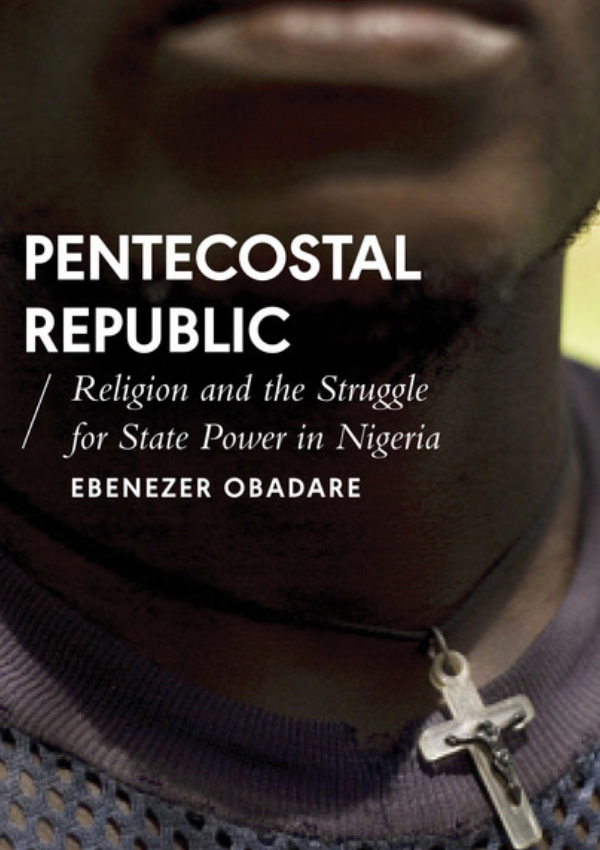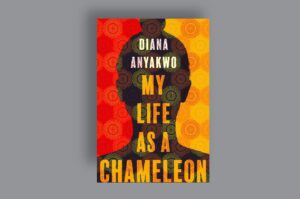
Pentecostal Republic takes a hard look at the influence of pentecostalism in Nigerian politics. Prof. Obadare is a sociologist, who studies civil society in Africa. In this exhilarating book, he credits the challenges of Nigerian politics and state practices to the ways in which Pentecostalism frames the action and vision of political leaders and intellectuals. Pentecostal Republic is a book about religion in contemporary Nigerian life written by an expert for the average reader. The style is relatable and fun, but the content is rich, multi-dimensional, and objective.
Here is an excerpt.
Enjoy!
***
“On Friday 14 October 2016, Reuben Abati, one-time spokesperson for the administration of President Goodluck Jonathan (2010–15), published an article in his weekly newspaper column titled ‘The spiritual side of Aso Villa’.
Prior to his appointment in July 2011 as replacement for former TELL magazine associate editor Ima Niboro, Abati had established a long-standing reputation as one of Nigeria’s most forthright newspaper columnists, a model of pugnacious integrity in a notoriously venal media landscape. However, by October 2016, things had turned sour between Abati and his avid followers, the greater part of whom struggled to reconcile themselves with his decision to serve the same administration he once pilloried in his writings.
Others took exception to what they decried as the petulant manner in which he discharged his duties as Special Adviser on Media and Publicity, launching peevish attacks on perceived enemies of his boss. Therefore, by the time Abati started writing for The [Lagos] Guardian again following his controversial stint in Aso Villa, few bothered to pay him any heed. The columnist who had once told everyone what they needed to think had become a social undesirable many would rather not think about.
Despite this, the article in question was widely circulated and vigorously debated across the vast spectrum of Nigeria’s boisterous social media. Presumably, this was due to the subject of the essay – spirituality and power. But another reason the article generated such intense interest was because of Abati’s core claim, that Aso Villa, the seat of the Nigerian presidency, was under siege by demonic forces, and is a place where ‘most people … always bathed in the morning with blood. Goat blood. Ram blood. Whatever animal blood.’ Abati’s essay invoked and consecrated four related narratives about power and spirituality in Nigeria.
First, for many people, it validated the popular belief that there is something sinister about Aso Villa, the physical seat of executive power in the country. When the administrative capital was moved from Lagos to Abuja in December 1991, there were wild rumours of the move having been sanctioned only after a cautious President Ibrahim Babangida had made the place safe through ‘spiritual cleansing’ facilitated by sundry ‘mallams’ and conclaves of Muslim marabouts recruited from across the West African sub-region and beyond.
Abati’s testimony about ‘colleagues who lost daughters and sons, brothers and uncles, mothers and fathers, and the many obituaries that we issued’ reinforced the image of Aso Villa as a space associated with mortal danger….
Second, Abati poured fuel on the fire of the common belief that political success is neither secured nor maintained without the ‘donation’ of blood, often other people’s, but, if necessary, the blood of a close relative or kin of the individual either seeking office or desperate to keep it.
For most people, therefore, incidents such as the shocking discovery by the Nigerian police in August 2004 of dozens of corpses at a shrine in Okija, Anambra State and the subsequent revelations that senior political figures had attended the shrine and sworn oaths there merely confirmed a reality that they always took for granted.
It was in that spirit, presumably, that Abati wrote about ‘days when convoys ran into ditches and lives were lost’, and other occasions when the plane in which then President Jonathan and his team were travelling ‘had to be recalled’ because it was ‘acting like it would crash’, or other times when the aircraft either ‘refused to start’ or ‘just went dead’.
There is an obvious logical contradiction here: if Aso Villa is such a place of danger, why have successive Nigerian heads of state shown such desperation in their attempts to cling on to power? Nigerians’ unique resolution of this contradiction is that the mechanisms of the same dark forces create the leaders’ fatal attraction to power.
Third, with his allusion to ‘all those colleagues who used to come to work to complain about a certain death beneath their waists and who relied on videos and other instruments to entertain their wives’ quite suddenly experiencing ‘a reawakening’ after vacating Aso Villa, Abati was, for many, merely affirming the connection between power and masculinity, between sex and power, and the general impression of the (politically) powerful man as one who is also invariably sexually potent. In Nigeria, no discussion of the powerful is complete without salacious gossip about their sex lives.”
***
Buy Pentecostal Republic | University of Chicago Press | Amazon









COMMENTS -
Reader Interactions